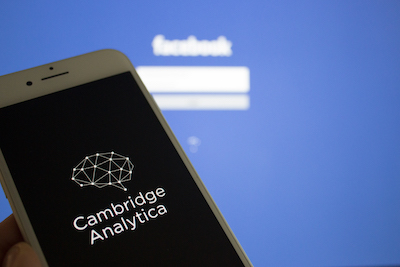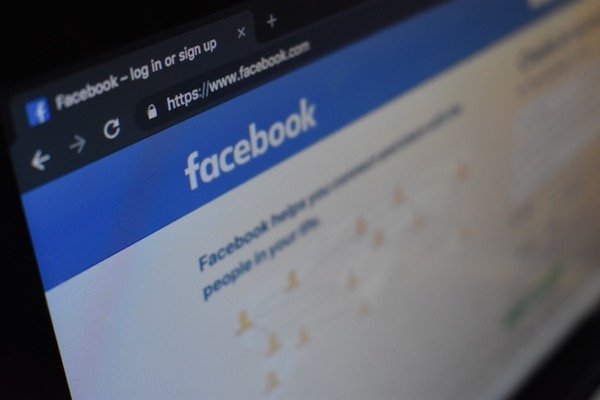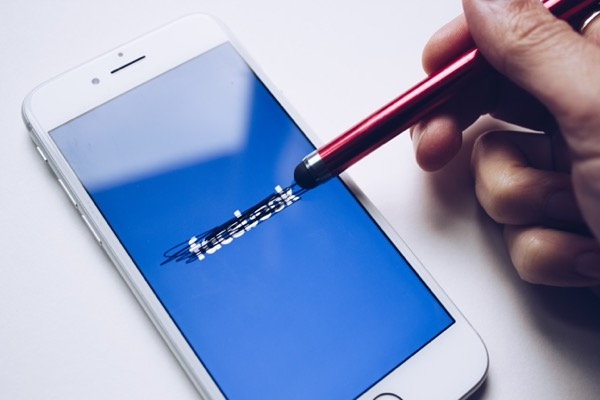Facebook. You love it, or you really don’t. It seems that there’s no in-between. And even those who love it, scrolling through timelines, jeez, it’s so time-consuming. Addictive even? It’s its strength and also its weakness maybe when you're using it personally. And more and more people seemed to change their ways of using Facebook, going from being personal users to ‘just’ using it for business, professional, after all the negative PR in 2018. It gets one thinking, right?
Last year was a year that Facebook would probably prefer to forget. Fake news, Cambridge Analytica, Mark Zuckerberg’s subsequent Senate and House of Representative's appearances, data privacy scandals…the list is long. 87 million users were affected by the Cambridge Analytica scandal – where a political consultancy had harvested private information from over 50 million users without their permission, using it to create “personality profiles” for voters. This was done through a simple personality quiz app on Facebook that many people wouldn’t think twice about completing. This made it easier for them to manipulate the types of content that users saw in their feed.

Facebook had known for years that Cambridge Analytica collected data from millions of its users but relied on the firm to self-certify that they had deleted the information. Following this, in a separate data breach later on in 2018, Facebook potentially fell foul of Europe’s GDPR laws and could face a fine of $1.63 billion as a result. Hackers gained access tokens to at least 50 million accounts by bypassing security measures and potentially giving them full control of profiles and linked apps.
During an internal audit at Facebook it was discovered that some Facebook users had exploited a flaw in search functionality to match people to email addresses or phone numbers. This had meant that data could be scraped and used maliciously after matching it up.
And the issues just kept coming and coming...
- The spreading of “fake news” via Facebook was implicated in humanitarian crises in Myanmar, which led to Facebook updating their content policy to prohibit the spread of misinformation that incites violence
- In June 2018, Facebook gave 60 device makers access to user data without permission – this included Amazon, Apple, Microsoft, Blackberry and Huawei
- Over summer, the site revealed bugs in features that let users decide who they shared content with and who they blocked meaning that their requests hadn’t always been met correctly
- In July Facebook told Congress they had special data arrangements with dozens of companies, including Russian internet giant Mail.ru – they also found lots more fake accounts
- In August, there were concerns about targeted advertising and how this potentially discriminated against certain groups. There were also concerns about the transparency of who buys political advertising on the platform
- In October Facebook faced a lawsuit over inflated video view metrics, which have likely contributed to an increase in the use of video during this time. The lawsuit alleges that Facebook knew about the miscalculation long before they came clean about it
- There were more concerns later in the year after internal communications went public that seemed to suggest that Facebook offers major advertisers special access to user data
- In December a bug was found that that exposed 6.8 million users photos to third-party developers
Facebook’s share price dropped sharply in line with some of these allegations, with Mark Zuckerberg seeing a loss of an estimated $15 billion. Facebook has predicted that its predicted revenue growth will slow down through to the end of 2019. Apparently employee morale is down and founders of two Facebook products – Whatsapp and Instagram – resigned.

Who cares?
But most importantly, do people really care about any of this? And are they actually leaving Facebook? Well, that’s kinda hard to tell. In research conducted by Pew Research Center, it was reported that as many as 40% of US users have taken a break from checking the app for several weeks on end. 44% of younger users in the US have deleted the app off their phone entirely, preferring apps like YouTube, Instagram and Snapchat to get their social media fix. Research carried out by Hubspot – admittedly over a fairly small sample size – suggested that the main security breach in 2018 where 30 million people had their data compromised hadn’t had a significant impact. 60% of the respondents said that the breach hadn’t caused them to stop using Facebook or delete their accounts.
The number of Facebook accounts actually rose towards the end of 2018 to well over 2 billion according to Facebook. This is a significant increase from the end of 2017. And as of June 2019, Facebook has grown to 2.38 billion users!
Okay, let’s throw some stats into this
So, that’s a whole lot of information. Now, let’s just get to the point. Do you keep using Facebook? Here’s what the stats have to say:
- Facebook remains the most popular social media platform, the biggest there is
- 22% of the world’s total population uses Facebook
- 400 new users sign up to Facebook every minute
- 1.52 billion people log into Facebook daily, a 9% increase on last year
- 35 million people update their Facebook status every day
- 2.38 billion active users monthly
- There are 300 million photo uploads per day
- 510,000 comments are posted, 293,000 statuses are updated and 136,000 photos are updated every minute
- 4.75 billion pieces of content are shared daily – a 94% increase from 2012
- Users access Facebook eight times per day on average – which is incidentally the same amount of times that brands post on average per day
- Facebook is considered the “most important” social media platform for marketers according to Social Media Examiner
- 50 million businesses use Facebook pages
- 57% of consumers say that social media influences their shopping – with Facebook taking the lead at 44%

Facebook took some punches, but it’s not going anywhere
It doesn’t sound like Facebook is going away any time soon based on the above numbers. Sure, there was a commotion. And yes, users dropped (and then often got back on again, or started using it just professionally). Their numbers actually rose! Also, it turned out that leaving Facebook is easier said than done. People have compared it to a break-up, leaving a relationship. That’s how much we’ve grown accustomed to having Facebook in our lives. Facebook IS relationships, friendships, almost a validation of one's own life. You don’t just quit…
So nope, apparently, Facebook is not getting old, yet. In fact, it’s very much alive and kicking, and it’s an amazing (and till today, even the best) way to reach your local retailers via social media. We’ve got to say though, it feels like Instagram is reaching these same highs. With 1 billion active users monthly, Instagram has taken a huge
Facebook is still, and all research reflects this fact, the number one platform when it comes to ‘reach’. If you’re looking to increase visibility, Facebook is your winner. Instagram however, seems to win when it comes to engagement. They both have different target groups, and their audiences expect different kinds of content. It would make a great new blog post, to just compare these two giants for marketing purposes. Be on the look-out for that!
As a brand, having your name out there on Facebook is simply a must. If you’re not there, you’re not real? Embrosa offers you an easy way to get your visuals and content out there, available for your local retailers to share. Get in touch with us, we’ll happily get you started and we’ll have you upload your content to our app in no-time! Our app is a mobile social media manager and marketing agency in one. We offer great visuals by brands or general content for your specific industry AND we let you (your customers) share this content directly to Facebook (Yihaaa) and Instagram. So, let’s get in touch? And let’s connect on Facebook and Insta while you’re at it!